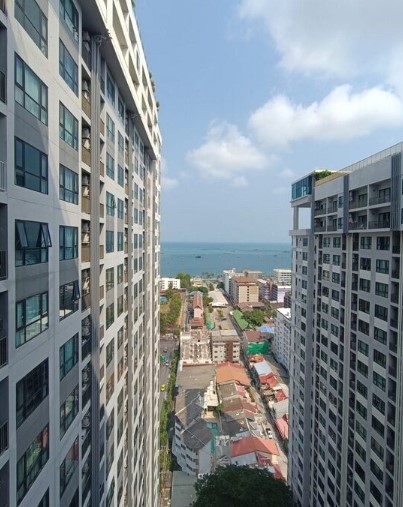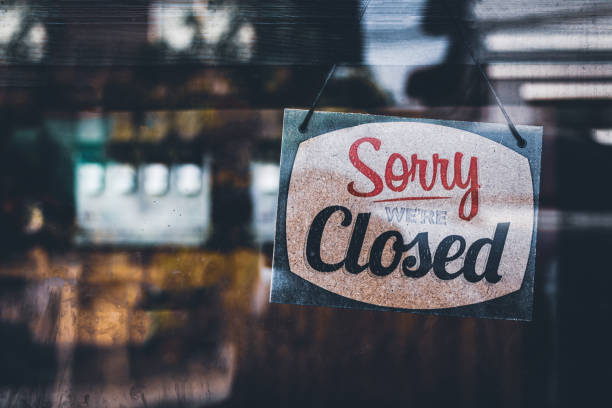Here at Tigon Consultancy, we talk daily about the tangible benefits of life in Thailand: the world-class beaches, the affordable cost of living, the vibrant culture, and the delicious food. It’s a dream destination for hundreds of thousands of expats. But beneath the surface of this tropical paradise lurks a silent and devastating crisis—one that rarely makes the tourist brochures but is tragically familiar to those within the expat community.
We’re talking about mental health. And, with a heavy heart, we must address the most extreme and visible symptom: the alarming rate of suicides, particularly falls from high-rise condominiums in cities like Pattaya.

This is a difficult subject, but as your trusted medical insurance advisor, we believe in facing hard truths to provide real solutions. This post will explore the complex reasons behind this crisis, dismantle harmful stereotypes, and, most importantly, outline the pathways to effective help—pathways that a comprehensive international health insurance plan can make accessible and affordable.
The Shattered Dream: Why So Many Expats Struggle
The narrative of the “failed expat” is often oversimplified. It’s rarely one single thing, but a perfect storm of compounding pressures that erode mental resilience over time.
- Profound Isolation and Loneliness: Moving to a new country is exhilarating, but the novelty eventually wears off. Expats often leave their lifelong support networks—family, friends, colleagues—behind. Despite being surrounded by people, the feeling of being fundamentally misunderstood or alone in a foreign culture can be crushing. Social media, showing only the highlights of others’ lives, often deepens this sense of isolation.
- Financial Freefall and Pressure: Many expats move to Thailand with a fixed pension or savings. Currency fluctuations, poor investment decisions, buying a bar, unexpected medical bills, or simply outliving one’s savings can create intense financial anxiety. The fear of having to return home in disgrace, “a failure,” can feel more terrifying than the abyss.

- The “No Way Out” Mentality: This is a critical factor. The very act of moving across the world to pursue a dream can, in itself, become a trap. Admitting you are unhappy, mentally unwell, or struggling can feel like an admission of a colossal personal failure. The pride that brought them here can become the barrier to seeking help or even considering a return home, creating a feeling of being trapped with no escape route.
- Pre-existing and Untreated Conditions: Many individuals move to Thailand hoping a change of scenery will cure underlying issues like depression, anxiety, or bipolar disorder. Unfortunately, mental health conditions follow you. Without a familiar support system and consistent care, these conditions can worsen, often exacerbated by…
- Substance Abuse as a Coping Mechanism: The easy availability and low cost of alcohol, coupled with a party-centric culture in certain areas, can lead to self-medication. What begins as social drinking can spiral into a dependency that severely worsens depression and impairs judgment, creating a vicious, self-destructive cycle.
Debunking a Dangerous Myth: It’s Not “The Thai Ladies”
It is a gross and damaging oversimplification to blame the tragic decisions of individuals on “Thai ladies and their free sexual attitudes.” This stereotype is not only culturally insensitive but it ignores the core issues.
Relationships, cross-cultural or otherwise, can be complex. Challenges in relationships can certainly be a stressor, but they are almost never the sole cause of such a profound act of despair. To suggest otherwise is to ignore the foundational pillars of mental health we’ve already outlined: isolation, financial ruin, untreated illness, and substance abuse. The problem lies not with a culture or its people, but with an individual’s inability to cope with the immense personal and psychological challenges of the expatriate life.

Rebuilding Your Foundation: A Proactive Approach to Mental Wellness
The good news is that mental health is manageable. The average expat can take powerful, proactive steps to protect their well-being:
- Build a Genuine Community: Move beyond the bar stool. Join clubs, volunteer, take a language class, or find a hobby group. Seek out connections based on shared interests, not just a shared nationality.
- Establish Routine and Purpose: The “endless holiday” can be disorienting. Create a daily structure that includes productive activities, physical exercise, and healthy meals. A sense of purpose is a powerful antidote to despair.
- Limit Alcohol and Substances: Be brutally honest with yourself about your consumption. If it’s a coping mechanism, it’s part of the problem.
- Stay Connected to Home: Leverage technology to maintain regular, meaningful contact with loved ones back home. Let them be your anchor.
- Talk about It: Break the stigma. Open up to a trusted friend. You will often find they are struggling with similar feelings. You are not alone.
A Safety Net of Professional Care: Services Available in Thailand
When proactive measures aren’t enough, professional help is essential. Thailand is home to a growing number of excellent, international-standard mental health facilities and professionals who are experienced in working with the expat community.
Rehab Centres:
For those struggling with substance abuse intertwined with mental health issues (Dual Diagnosis), specialized rehab centres are available. Facilities like The Cabin Bangkok, DARA Rehab, and Hope Rehabilitation Centre offer structured, residential programs with counselling, group therapy, and medical supervision. Costs can range from 150,000 THB to over 500,000 THB for a 28-day program, depending on the luxury level of the facility.
Psychiatrists and Therapists:
For outpatient care, major cities like Bangkok, Chiang Mai, and Pattaya have numerous English-speaking psychiatrists and clinical psychologists. They can provide diagnosis, therapy (CBT, DBT, etc.), and medication management.
- Bangkok: Hospitals like Bumrungrad International, Samitivej, and Bangkok Hospital have full-fledged psychiatry departments.
- Pattaya/Chonburi: Bangkok Hospital Pattaya and Pattaya International Hospital offer psychiatric services.
- Chiang Mai: Maharaj Nakorn Chiang Mai Hospital (University Hospital) and Sriphat Medical Center have reputable departments.
Costs for private psychiatric care typically range from 2,500 THB to 5,000 THB per consultation, with medication and therapy sessions being additional.
Your Most Valuable Asset: Comprehensive International Health Insurance
This is where the conversation comes back to the core of our mission at Tigon Consultancy. The costs outlined above are significant. Facing a mental health crisis is daunting enough without the added terror of financial ruin.
A robust international health insurance plan is not just for a broken arm or a heart attack. It is your fundamental safety net for total well-being. The right plan will cover:
- Outpatient Psychiatric Care: Including consultations, therapy sessions, and prescribed medications.
- Inpatient Mental Health Treatment: Covering hospital stays for severe episodes or stabilization.
- Rehabilitation Programs: Providing substantial coverage for registered rehab centres, making life-saving treatment accessible.
With this coverage, the question changes from “How can I possibly afford to get better?” to “Which is the best specialist or facility for me?” It removes the primary financial barrier to seeking help, empowering you to make the decision that could save your life.
Your life in Thailand should be a chapter of renewal and joy, not a story of silent suffering. At Tigon Consultancy, we believe that protecting your mental health is just as important as protecting your physical health. It’s not a sign of weakness to ask for help; it’s the ultimate act of strength. Please, reach out. To a friend, to a professional, and to us, to ensure you have the coverage that gives you the freedom to live your dream life, healthily and happily.

Disclaimer: *If you or someone you know is in crisis, please contact the Samaritans of Thailand at 02-713-6793 (English) immediately. This article is for informational purposes and is not a substitute for professional medical advice.*


